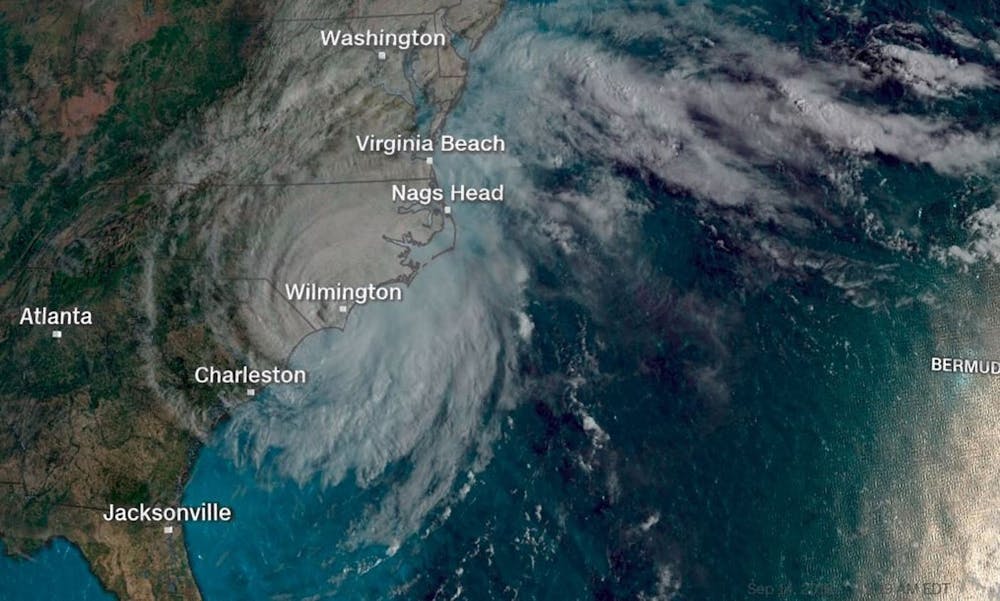Rainy days may be ahead for North Carolinians, as the National Oceanic and Atmospheric Administration predicted this hurricane season will bring above-average hurricane activity in an Aug. 4 press release.
Forecasters from the organization said the likelihood of an above-normal season is 60 percent. The likelihood of near-normal activity sits at 30 percent and chances for a below-normal season are at 10 percent.
While the Atlantic hurricane season lasts from June 1 to Nov. 30, the first major hurricanes typically begin in late August or early September.
Matthew Rosencrans, the lead for the seasonal hurricane outlook for NOAA, said about 75 percent of activity occurs after Aug. 20, with peak activity occurring on Sept. 10.
He added that about 60 to 90 days after the intense heat of the summer solstice, changes in wind patterns occur. These changes can lead to the formation of tropical storms, which can develop into hurricanes.
Rosencrans also said the biggest impact of hurricane activity in inland North Carolina is typically flooding.
He added that tropical storms can bring six to ten inches of rain well away from the storm, with the storm’s remnants leading to inland flooding.
“So people even inland really need to pay attention to the tracks of these storms,” Rosencrans said.
In 2018, UNC created a $2 million initiative to help students who were affected by Hurricane Florence, which resulted in record flooding and 42 deaths in North Carolina.




